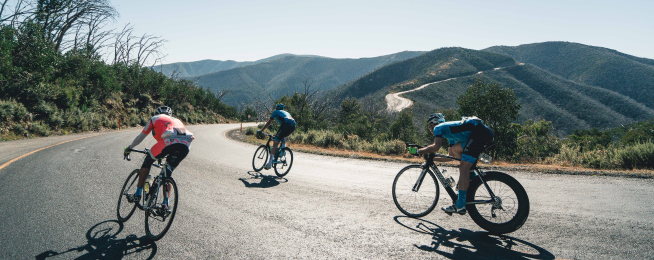The internal self-talk was pretty bad.
“This is so shit.”
“It doesn’t make sense. I prepared so well.”
“I know it’s normal to be challenged, but this fucked”.
“I actually don’t even care about the bloody “achievement”, I don’t need it to know myself.”
“I’m never gonna to be in my sweet spot for this type of riding anyway, let alone perform well against others.”
“If I pull the pin, I actually don’t care – and I don’t care when people ask me about it.”
It was the Peaks Challenge – Falls Creek, in the Victorian high country, March this year, and I was suffering.
A 235km timed ride, with 3 major mountain climbs. The equivalent of a mountain stage in the Tour de France.
In an endurance sport like cycling, there’s always a degree of suffering involved. This isn’t a macho or egotistical claim, it’s just the way it goes. Do a long ride on a bike, and discomfort and body-mind challenge is only a matter of time regardless of your ability or riding speed. The fastest of the 2-3000 annual participants do this event in 7 hours or so, the slowest, 13. So it’s a big day no matter who you are.
From very early in the ride, I was feeling tired, weak, sore and had a strong headache. My performance output was much lower than I’d consistently prepared at for months, and worst of all, I wasn’t able to full heartedly appreciate the opportunity to take part in such a great event in incredible surrounds.
And my physical challenge had company. Self-induced questions, doubts, complaints, reactive resolutions – a stream of unhelpful thoughts.
All parts of the bigger story I had playing. The stories we tell ourselves.
Deep down it was a story of inner resistance. Resistance to the reality of the demands of this opportunity. And perhaps even deeper, a premature idea that I couldn’t cope?
As humans, we’re constantly assessing the information we perceive. We have a tendency to attempt to make meaning, of what we experience through all our senses. In this way, we create our own reality. And by extension, our beliefs of what is, and isn’t possible.
But the tricky thing is, this meaning making is often done subconsciously. It then becomes a subtle, invisible narrative we operate by.
And we forget, and don’t see, that it’s operating on us.
So in creating the performance, leadership, well-being or life we want, of course it all comes down to the actions we take, but sometimes we may have background stories that are influencing what we see as possible.
What stories have you got running?
I’m always happy to discuss any initial thoughts you may have about these writings. Get in touch for a casual chat about it. No obligation but you’ll be be closer one way or another.

